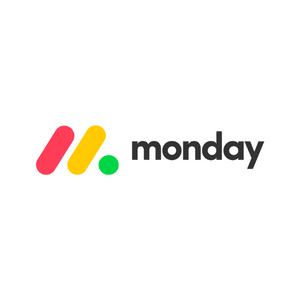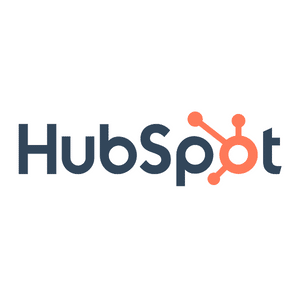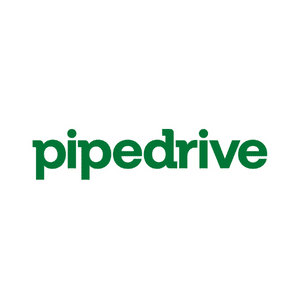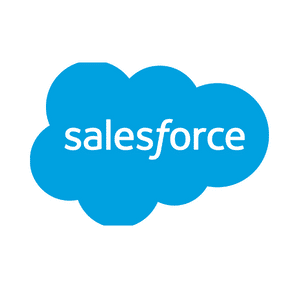If you’re looking to grow your startup fast, you’ll benefit from focusing on building customer relationships.
One of the best ways to do this is by finding a reliable and quality CRM for startups.
As a long-time employee of corporate America, I have explored many kinds of CRM software and discovered the fundamental characteristics that can make them stand out from the rest.
With my background in CRM and the dedicated help of the Small Business Bonfire team, all of the CRM software on this list has been thoroughly examined with methods including:
- Independent lab testing
- Third-party review research
- Participation in demos
- Personal use
If you’re looking for the ultimate CRM software to make your startup grow exponentially in 2023, look no further.
Welcome to my list of the best CRM for startups!
What is a CRM for Startups?
CRM for startups helps businesses manage their customer relationships and business data from one organized toolkit.
CRM software can help streamline connections between businesses and their customers and between sales reps and potential clients.
As such, they present startups with many opportunities to maximize profits and brand success.
They do this by helping you track and manage your customer interactions, both prospective and loyal.
CRMs can also assist with workflow and marketing automation, which is a valuable asset, especially in a beginner startup company with minimal employees.
Each CRM system on this list comes with an unimaginable amount of stellar customer service and organizational tools that will make improving your business strategy a breeze.
Some main CRM features are as follows:
- Project management tools, such as customizable dashboards and marketing campaigns
- Easy tools to prioritize top customers, such as customer data tracking and lead management
- Streamlined customer communication across email and social media channels
- Secure data and business information storage
- Customer service tools
- Detailed customer purchase histories
Why Should Startups Use a CRM?
Better Lead Tracking
Tap into the potential of lead generation to take your startup growth to new heights.
Lead generation is possible by using multiple outreach methods, such as ads, direct contact, web queries, emails, and social media campaigns.
Using these tactics, you can achieve quality leads that eventually become your company’s long-term customers.
Look for CRM software with integrated Lead Management Tools to turn these leads into loyal customers. These will ensure that no prospective customer or client slips through the cracks due to your lack of follow-up.
Lead tracking tools also often will keep your entire team posted about the status of your relationship with a potential customer, including previous sales and interactions.
Increased Organization Management
The startup life is often chaotic and unorganized.
For a startup to maximize its efficiency and capitalize on even the smallest of opportunities, it needs to stay on top of a vast amount of data, including customer information, sales activities, project management tasks, finance records, etc.
CRM software can provide startup businesses with tools to keep everything organized and controlled.
With the ability to track contacts, set reminders, and schedule tasks, startup CRMs allow you to stay on top of the ever-growing responsibilities associated with managing a startup business.
It can also prove especially useful for startup companies with limited staff or resources.
The proper startup CRM can help streamline and automate processes, freeing up more time for you to focus on the growth of your startup business.
Enhanced Team Collaboration
Collaboration in the workplace is evolving rapidly, thanks to the ever-growing list of cutting-edge technologies and trends in CRM.
By using collaborative CRMs, businesses can create a unified team working together to optimize customer service for ultimate client satisfaction.
Many of these tools offer multiple user seats so teams can share data and collaborate more productively on accessible all-in-one dashboards.
SOP Creation
Standard Operating Procedures (SOPs) are documents that detail all the steps required to complete a process or procedure.
SOP development services often include end-to-end level mapping of processes and formatting according to specific organizational structures.
Many CRM platforms on this list, such as Zoho CRM, offer stunning SOP creation tools to bring your sales teams together.
Streamlined Marketing Automation
Marketing automation is utilizing technology to streamline and optimize marketing processes.
With automated workflows, you can segment leads and generate new ones and nurture relationships with existing customers.
By leveraging startup CRM with automated marketing tools, you can easily set up email newsletters, social media posts, and more campaigns.
This can be done quickly and efficiently, giving startup businesses a competitive edge in an ever-changing market.
Better Customer Data Management
Every startup should be able to keep track of its customer data and use it efficiently.
The right startup CRM can comprehensively view your customers, from purchase histories to contact information.
This will help you better understand your target market, track leads, and make more informed decisions about how to serve them best.
By leveraging data from contact management systems and using them as part of an overall customer relationship management strategy, your startup can optimize its sales and service levels to support growth.
With these powerful tools, organizations can track all contacts’ details and any interactions they have had with the company, enabling informed decisions that will fuel success.
Features to Look for in CRM Software for Startups
Software Integrations
Software integrations can make or break CRM software, taking it from a helpful tool to a comprehensive resource.
A startup CRM should be able to integrate with other business software to help facilitate better collaboration, communication, and data organization.
Furthermore, integrations make data and email syncing much easier.
For example, if you run a retail startup, you’ll want to look for a CRM that offers eCommerce integrations.
As another example, social media integrations make marketing outreach and feedback tracking a breeze.
The data from your integrations will sync to your CRM dashboard so you can access it all in one place.
Look for CRM tools that connect to third-party apps like email, accounting, and project management programs.
Marketing Automation
Marketing automation is the answer to saving time for you and your team.
By utilizing this tool, offered on each startup CRM on this list, your business strategy can become more efficient.
Marketing automation also opens up possibilities to drastically improve an organization’s success.
From segmenting leads, generating new ones, social media outreach, and campaign idea generation, there are countless ways these tools can optimize every aspect of a company’s success.
Custom Dashboards
Dashboards for startups are invaluable, enabling you to easily recognize the various metrics and sales reports pertinent to your company.
Moreover, these dashboards provide visual representations of data, making it even easier for you and your team members to comprehend.
The greatest part? Customizability.
On most of these CRM platforms, you can customize your all-in-one dashboards by organizing and categorizing their different reports to achieve maximum clarity.
Follow Up Reminders
Follow-up reminders are the cherry on top when staying on top of things with CRM.
Startup CRMs allow you to automate follow-up emails, calls, and texts based on specific criteria, such as when a customer hasn’t returned your call or sent an email.
This allows businesses to maintain relationships with potential customers and keep their attention.
What is the Best CRM For Startups?
This list constantly evolves as I explore and evaluate the newest CRM applications.
This list edition has been tailored to 2023 with different software programs, priorities, and features compared to last year’s version.
The Small Business Bonfire team and I tested and reviewed each CRM software on this list according to these criteria:
- Pricing and affordability
- Pros
- Cons
- Scalability
- Ease of use

Do you run a startup sales team needing an efficient CRM software system?
Monday can be the answer to your collaboration needs.
With their Kanban board view, teams can easily track tasks and progress, set due dates, comment on projects and attach files in one place, making communication easier for everyone.
Their pricing plans are more affordable than many other CRM for startups available today, which makes them great for the startup phase of your company’s lifespan.
Why We Picked It
- Email sync
- Customer interactions tracking
- Lead management
- Custom dashboard
- Extremely customizable sales pipelines
- Team performance reports
- Goal organization
- Data cleanup and imports
- Project management tools
Pricing
Monday offers a free plan for startup companies with unlimited contacts and pipelines.
If you have the budget to scale up, start by filtering out the best package depending on how many team members you need to fit into it.
The most popular pick is their Standard Plan at just $10 per monthly user.
However, users who upgrade to Pro at $16 monthly per seat receive additional perks like sales forecasting.
Pros
- Great free plan
- Team-centered benefits
- Affordability
Cons
- Potentially complicated interface

No matter your industry, HubSpot’s software suite is designed to provide comprehensive support for both B2B and B2C startups.
Outbound marketing, sales pipeline management, email tracking, lead nurturing, and contact management? They’ve got it all.
You’ll also get rapid-speed metric analysis with a visual dashboard that tracks customer interactions across multiple platforms, such as emails, social media chats & even phone calls.
Why We Picked It
- Customer engagement tools within customer data storage
- Sales pipelines include tracking of sales processes
- CPQ Functionality
- Reliable reports
- Large app marketplace with over 1k+ integrations
Pricing
The most realistic solution when it comes to HubSpot CRM for startups would be their free tool.
Otherwise, their annual plans cost between $50 and $3,600.
The free tool comes with free marketing, sales, and customer relationship management tools to help get your startup off the ground.
Pros
- Excellent customer support
- Easy to use
- Great free plan
Cons
- Non-paid plans get very expensive

Streamline your sales process and maintain high-quality communication with ClickUp’s incredible resources.
You can facilitate customer onboarding, account management, and order tracking through their automated pipeline and user-friendly interface.
Plus, they offer customizable CRM templates for hiring teams, healthcare specialists, customer service representatives, or even real estate agents.
No matter what industry you’re in, ClickUp has something to help you launch your startup easier.
Why We Picked It
- Sales process tracking with visual pipelines
- Contact management and customer data storage
- Multiple data organization types: list, Kanban board, or table
- Sleek dashboard
- Lots of app integrations
- Industry-specific
- Tools for sales and marketing teams
Pricing
ClickUp is a free CRM software that offers a variety of pricing options.
For users looking for access to more of the platform’s features, consider Clickup’s Unlimited Plan at $5/month per user. It’s perfect for startups and offers an array of fantastic features.
Or, if you need advanced functions, upgrade to the Business plan at $12/mo per user.
Pros
- Free onboarding training
- 24/7 customer support
- Reliable uptime
Cons
- Less customizability than other CRM for startups

PipeDrive is a powerful growth-focused CRM software that combines every aspect of your sales process in one sleek platform.
Its intuitive interface, comprehensive features tailored to any industry, and wealth of reporting capabilities make it easy for startups to stay on top of their goals. These aspects make it a quality CRM for startups in particular.
They also offer a responsive mobile app to stay in touch on the go.
Pipedrive helps accelerate project management and marketing campaigns so that you can build your startup at lightning speeds.
Why We Picked It
- Sales pipeline progress for every customer interaction
- Tracking for sales processes
- Contact management
- Leads inbox
- Email sync
- Improvement suggestions
- Clean reports
Pricing
Pipedrive provides four unique annual pricing packages for their CRM solutions:
- Essential: $14.90/month
- Advanced: $24.90/month
- Professional: $49.90/month
- Enterprise: $99.99/month
All plans include active deals, custom fields, and reports that will help streamline your operations in no time.
Pros
- Super easy to set up and use
- 24/7/365 customer support
- Scalability
Cons
- Minimal security features

Zoho CRM is a stellar CRM for startups if you’re running a customer-facing company.
This is because it does what a traditional CRM system does best: contact and customer data management, comprehensive analytics, and personalized solutions.
Zoho’s startup-centered solutions enable teams to develop profitable customer relationships through top-tier, knowing engagement.
Why We Picked It
- Rich analytics feedback
- Tons of automation solutions
- Sleek administrative panel
- High-quality customization
- 500+ app integrations
- Beginner-friendly with onboarding training
Pricing
Zoho CRM offers four monthly price plans:
- Standard: $20/month per user
- Professional: $35/month per user
- Enterprise: $50/month per user
- Ultimate: $65/month per user
Given the affordability at play with Zoho’s pricing packages, it’ll be easy to scale up as your startup grows.
Pros
- Economical pricing
- Comprehensive CRM features
- Great customer service
Cons
- Customizations can get pricey

Salesforce sales CRM offers the most widely-used CRM currently on the market with top-level quality.
Salesforce can be an excellent CRM for startups because of its vast features and capabilities.
From contact management to sales oversight and marketing campaigns, Salesforce offers power-packed solutions that are hard to find elsewhere.
With app exchange options and open APIs for integrations with other systems, businesses have unlimited opportunities to make this comprehensive CRM even more formidable.
Why We Picked It
- Build multiple dashboards
- Lead generation for prospective customers
- Lead management
- Campaign management
- Lead metrics
- Customer interaction tracking
- Mobile integrations
- Intuitive customer data storage
Pricing
SalesForce offers customizable pricing plans for users who want a personalized experience. However, users must contact Salesforce directly to receive a free quote.
Pros
- Very simple to set up and use
- Top-rated CRM software
- Customizable
- Features tailored for sales reps
Cons
- Potentially expensive to maintain on a startup budget

Whether your company is a small startup or an established midsize business, Pipeline CRM (formerly Pipeline Deals) is an excellent customer relationship management software to help you take advantage of game-changing opportunities.
It’s one of the best new CRM for startups on the market.
It offers an incredibly intuitive user experience that can be tailored to meet specific sales goals and objectives.
Furthermore, their dedicated support team ensures that all customers can access expert advice whenever needed.
If you’re looking for a CRM platform with tools and features designed specifically for maximizing in any industry, Pipeline is well worth a look.
Why We Picked It
- A wide swath of app integrations
- Easy email sync
- Personalized onboarding
- Quality customization
- Mobile responsive platform
- Workflow automation
- Organized contact management
- Sales process tracking
Pricing
Starting at $25/month annually, Pipeline’s Start Plan is the ideal CRM platform for smaller teams.
This plan gives you access to one sales pipeline, 250 deals or accounts, and unlimited file storage, offering unbeatable scalability from its pipelines.
Pros
- Flexible pricing with accessible scalability
- Reliable analytics
- Genuinely helpful customer support
Cons
- Limited pipeline access
Conclusion
As you can see, you have many options for selecting the right CRM software for your expanding startup company.
Whichever platform you choose should have all the features you need to achieve your desired growth, so ensure you’ve done adequate reflection and research before making a financial commitment.
Are you a small business owner? Do you have any questions about startup CRM? Let us know in the comments below!
FAQs about Startup CRMs
Startups don’t need CRM platforms to exist, but they do need them to flourish.
It’s a no-brainer since CRMs make it so much easier to scale, connect with clients and customers, and complete marketing and simple workflow tasks.
Salesforce is a great CRM software but can be potentially costly and overwhelming for beginner startups.
CRMs can be divided into four categories: operational, analytical, collaborative, and strategic.
Salesforce offers CRM tools, as well as a massive host of other marketing and sales devices.
Salesforce is the current top-used CRM on the market.
The three types of CRM are collaborative, operational, and analytical.
Newsletter Signup
Join The Leads Field Guide Newsletter for tips, strategies and (free) resources for growing your leads, and closing more deals.





